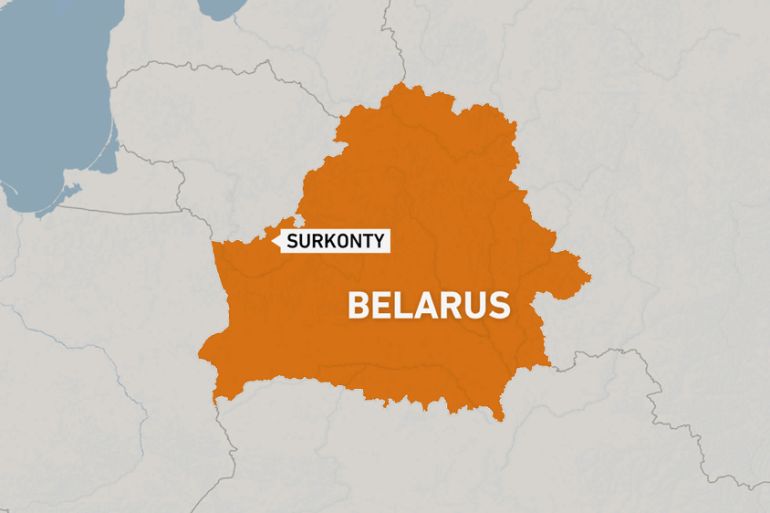Poland says WWII grave destroyed by Russian ally Belarus
Poland’s Foreign Ministry accuses Minsk of razing a memorial containing the remains of anti-communist soldiers.

Poland’s government has accused authorities in neighbouring Belarus of levelling a memorial site containing the graves of Polish resistance fighters who died battling Soviet soldiers during World War II.
Lukasz Jasina, the spokesman for Poland’s Foreign Ministry, said on Thursday that the cemetery in Surkonty, Belarus was being “devastated by the services of the Minsk regime”.
Keep reading
list of 3 itemsRussia arrests ex-mayor for ‘discrediting’ army amid Ukraine war
On Ukraine’s Independence Day, UN urges end to ‘senseless’ war
“Those who think that the human memory of heroes can be eradicated are very mistaken. The regime will pay for these acts of barbarism,” Jasina wrote on Twitter, referring to the graves of members of Poland’s largest wartime resistance force, the Home Army, who fought Soviet army troops in 1944.
The Home Army soldiers' cemetery in Surkonty is devastated by the people of the Minsk regime. Those who think that the memory of heroes can be eradicated are very wrong. The regime will pay for these acts of barbarism. https://t.co/7MCggaDlB9
— Łukasz Jasina (@RzecznikMSZ) August 25, 2022
The allegations – based on reports from the Polish minority in Belarus – came a day after Warsaw said it was demolishing a monument to Soviet Red Army soldiers in southwestern Poland. The site was one of dozens marked for destruction since Russia invaded Ukraine six months ago, but no soldiers were buried in it.
There was no immediate comment from Minsk, a key Moscow ally, and it was not clear if the developments were related.
The Home Army was under the command of a Polish government-in-exile that was based in London during the country’s occupation by Nazi and Soviet forces.
During the decades of Moscow-backed communist rule, Poles were forbidden from publicly honouring the memory of Polish victims of the Soviet Union or of those who fought the regime.
Belarus has destroyed two Polish wartime cemeteries since early July. Minsk has also been taking harsh steps against the Polish minority, arresting its leaders, ever since Poland backed the opposition against President Alexander Lukashenko and joined international sanctions on Belarus for its role in Russia’s war against Ukraine.
Poland was invaded and occupied by Germany and the Soviet Union during World War II and then spent decades under Moscow-backed rule. Since communism ended in the country more than three decades ago, there have been steps taken to remove communist symbols from public spaces.
While efforts to remove the remaining Soviet memorials increased following Russia’s invasion of Ukraine, cemeteries with the graves of Red Army soldiers have not been disturbed in Poland.
Ukraine has also ramped up “de-Russification efforts” in a symbolic attempt to sever its common history with Russia.
The Baltic states of Estonia and Latvia, where large Russian-speaking minorities live sometimes at odds with the national governments, have also removed Soviet-era statues despite tensions.